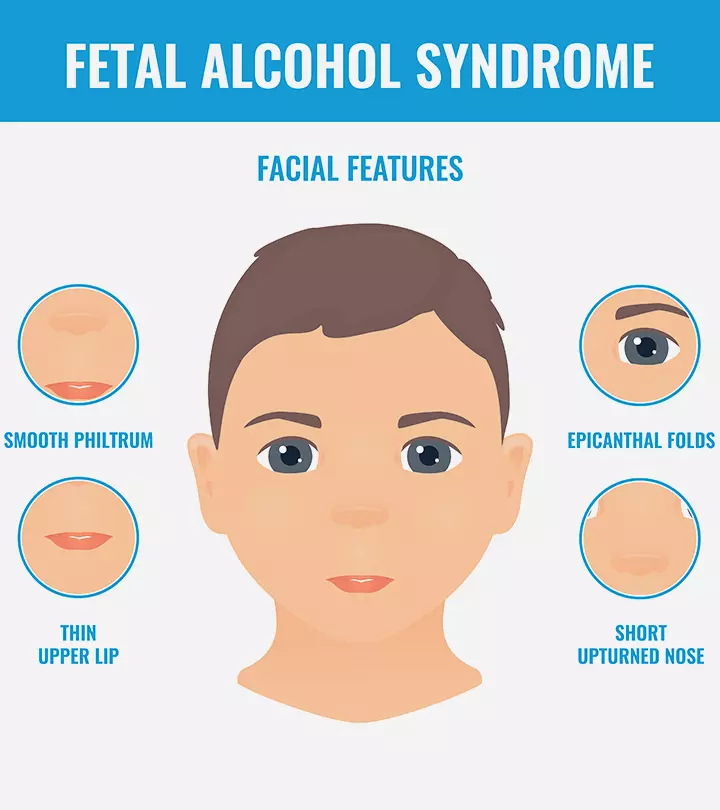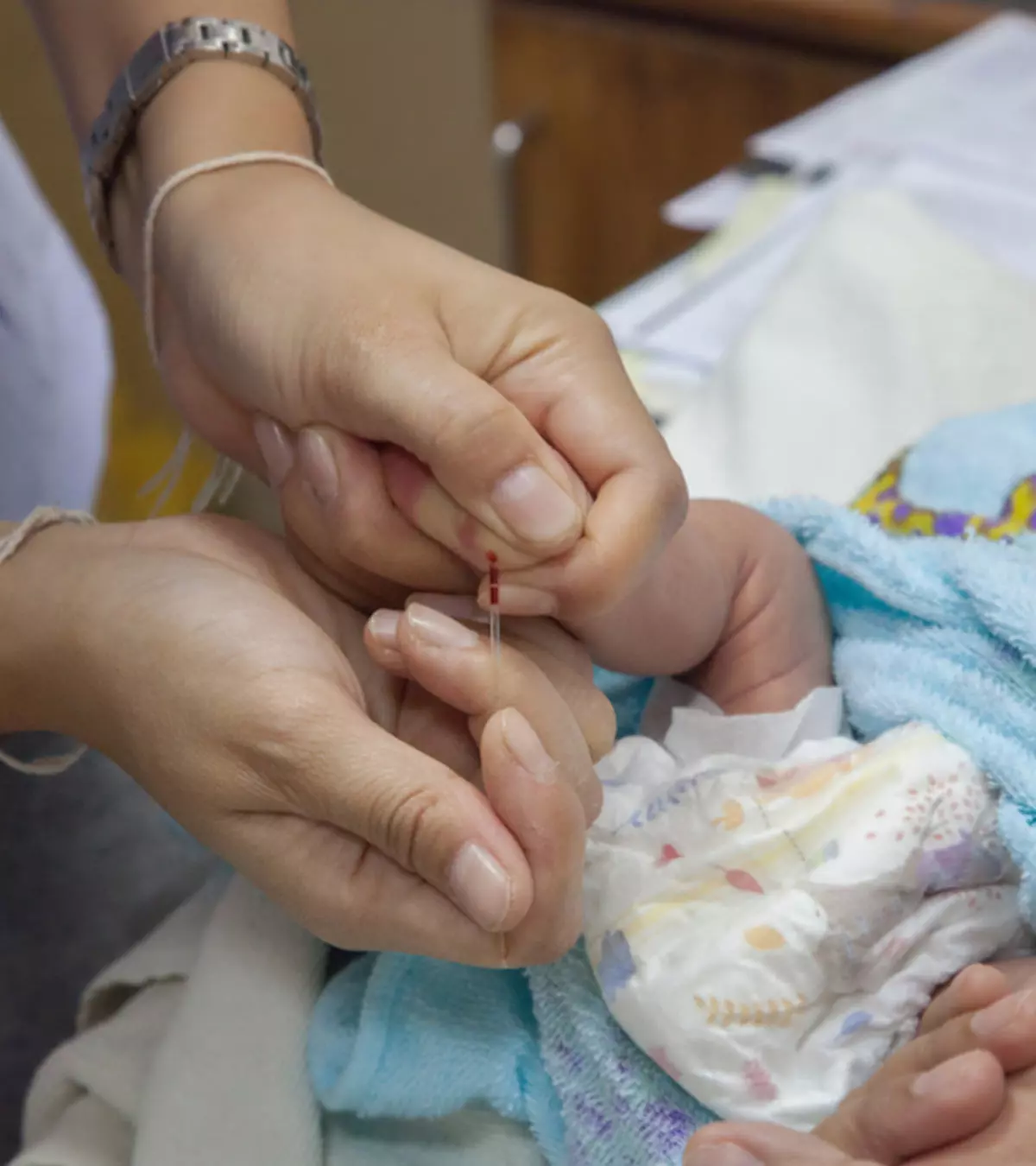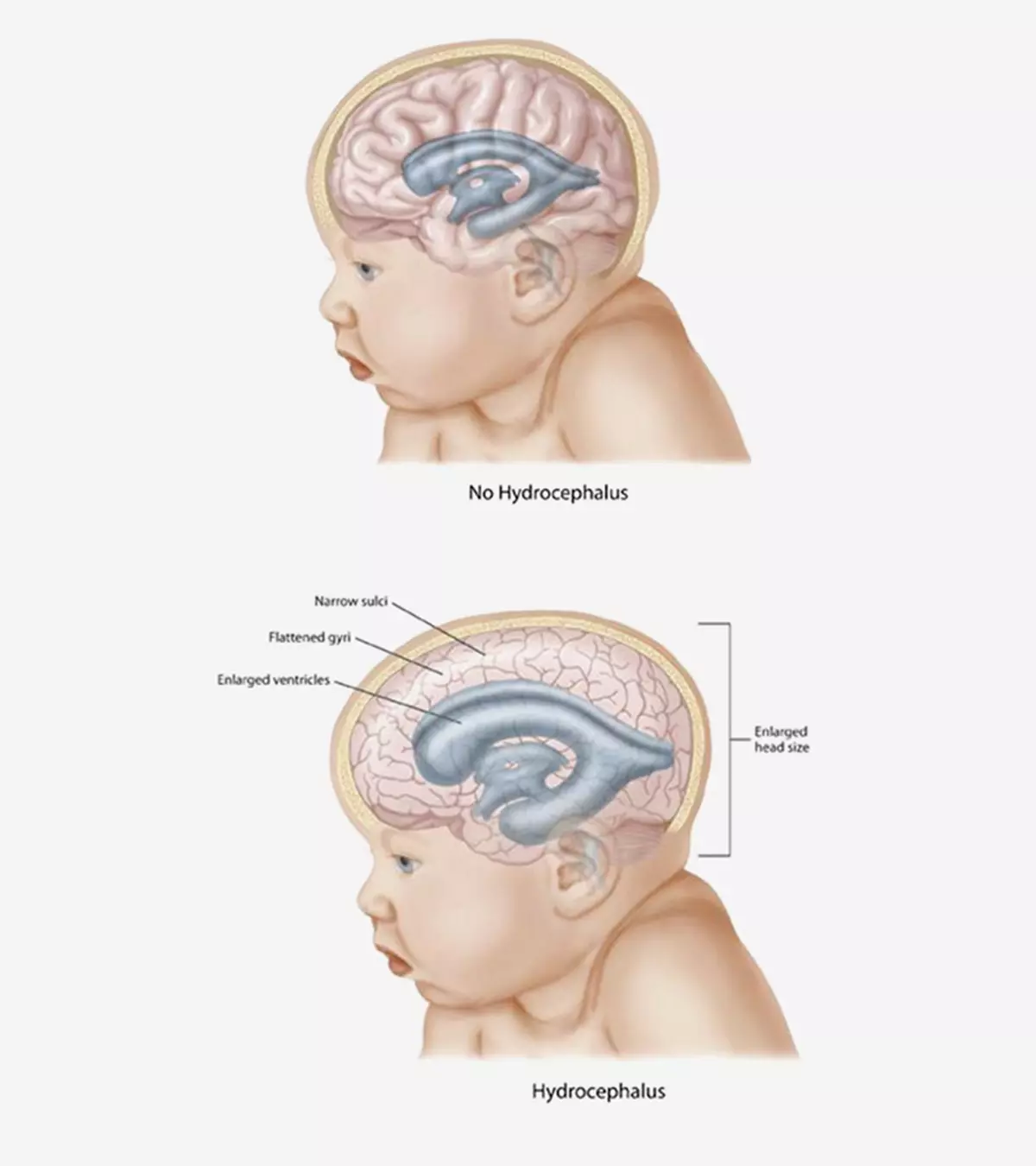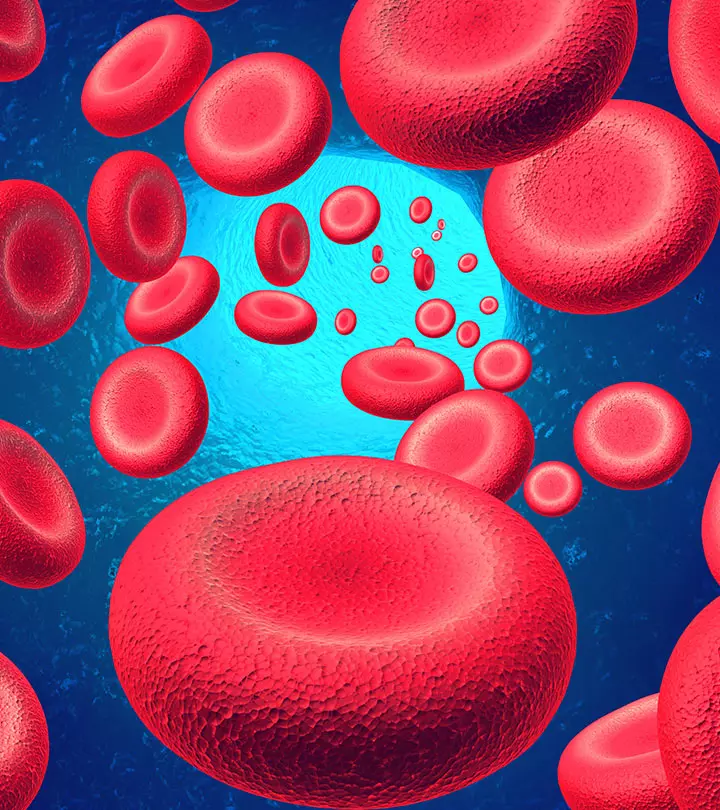
Image: Shutterstock
Missed miscarriage (missed abortion) is a silent or delayed miscarriage or early embryonic demise before 20 weeks of gestation. It is called missed miscarriage since there can be a few to no signs, and most women may still feel pregnant after miscarriages. An ultrasound scan may show the pregnancy sac with a nonviable fetus or embryo.

Embryonic or fetal demise due to cytogenetic abnormalities (chromosomal abnormalities) is a common cause of early missed abortions before ten weeks of pregnancy. It is impossible to continue the pregnancy if the fetus is not viable. You may need medical or surgical treatment if the products of conception are not expelled naturally (1).
Read about the causes, symptoms, diagnosis, treatment, and recovery of missed miscarriages.
Key Pointers
- Missed miscarriage is a silent pregnancy loss when a fetus has died and has not been physically miscarried.
- Beta hCG levels and pelvic ultrasound before 20 weeks can help detect a missed miscarriage
- Most women recover within a few weeks to a month post-miscarriage.
How Early Can You Have A Missed Miscarriage?
Missed miscarriages can occur any time after conception before 20 weeks of gestation
. There are two types of missed abortion–embryonic (preclinical) abortion or fetal abortion. An embryonic miscarriage is when the embryo has no cardiac activity with five centimeters or more crown-rump length. A fetal miscarriage is the absence of cardiac activity in the fetus of 7-20 weeks (10mm or more) (1) (2).
Lav Xu, a mom of one, had a missed miscarriage during her second pregnancy. She recalls, ” “NO FH” — these were the words that the sonographer typed on the screen when we went for our first ultrasound, a month after testing positive on a pregnancy test kit on Christmas Day. My husband and I stared at each other blankly. I inferred what it could mean, and I quickly asked, “Is it because it’s too early?” (i).”

What Causes A Missed Miscarriage?
The causes of missed miscarriages are similar to other types of spontaneous abortion (miscarriage) or early pregnancy failure. They include (3):
- Fetal chromosomal abnormalitiesiA genetic condition caused by changes in the structure and number of chromosomes
- Blighted ovum or anembryonic gestationiA condition where only the gestational sac grows while the fertilized egg fails to develop into an embryo
- Maternal diseases
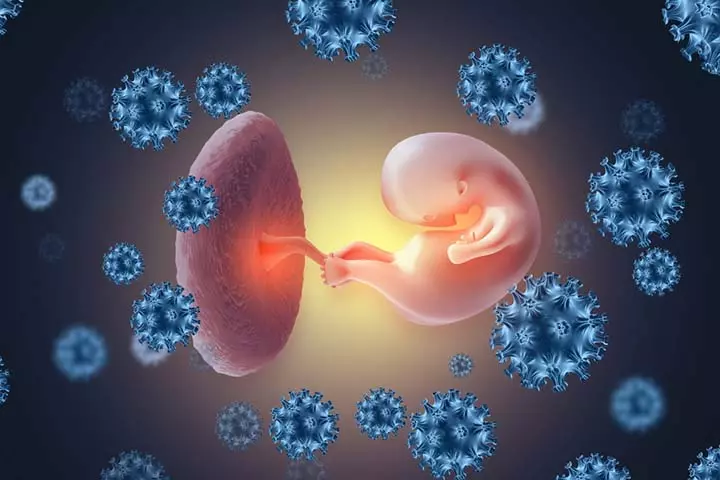
- Placental abnormalities
- Embryonic abnormalities
- Uterine abnormalities
 Point to consider
Point to considerWhat Are The Signs Of A Missed Miscarriage?
A missed miscarriage can be asymptomatic (no signs and symptoms) in most women. This is why many women may not know they had a missed miscarriage until their next ultrasound examination. Pain or tenderness is unusual.
Some women may have a brownish vaginal discharge, while some may feel unusual and often notice fading pregnancy symptoms such as nausea and tiredness. However, these changes may go unnoticed in the early weeks of pregnancy.
Although amenorrhea (lack of periods) can be present, it is also a pregnancy symptom and cannot be distinguished in the early weeks. The home or urine pregnancy tests can be positive even though the missed miscarriage occurred. You may seek medical care if you experience a lack of pregnancy symptoms (4).

How Is A Missed Abortion Diagnosed?
The physical examination and history are not enough to diagnose missed miscarriage since there are no reliable signs or symptoms. Doctors usually recommend laboratory evaluation and imaging tests to diagnose missed miscarriages (4):
- Beta-human chorionic gonadotropin (beta-hCG) levels in the blood are low if the pregnancy is not viable. In a viable pregnancy, beta-hCG hormone levels increase at a predictable rate.
- Pelvic ultrasound or transvaginal ultrasoundi A scan using an ultrasound probe that is inserted in the vagina and helps doctors examine the female reproductive system can help visualize the nonviable intrauterine pregnancyiA condition where fertilized egg implants in the uterus but is unable to survive because of improper development . In case of miscarriage, there is no heartbeat, and pregnancy size looks smaller than it should be around this stage.
Suppose the hCG levels are above discriminatory levels and no pregnancy is seen on ultrasound; the doctor may look for ectopic pregnancy or early pregnancy loss and plans further interventions. Missed miscarriages are also differentially diagnosed from conditions such as incomplete abortion and threatened miscarriage.
What Is The Treatment For Missed Miscarriage?
Most women with missed miscarriages in the early weeks of gestation may miscarry naturally within a few days. In the past it was common to await the onset of an abortion. Currently the uterus is evacuated soon after the diagnosis because of coagulopathy (reduced fibrinogen), infection or anemia. Medications or surgical treatment are recommended if embryonic tissue and placenta (products of conception) fail to pass through the cervix naturally.
Treatment options for missed miscarriages include (3):
- Surgical interventions such as suction curettage (vacuum aspiration abortion) or dilatation and curettage (D&C). These procedures can be done in an outpatient setting.

- Medications such as misoprostol and mifepristone (RU 486) are prescribed to empty the uterus for some women. This is often recommended for women who refuse surgical interventions since medical treatment is limited to clinical trials.
Although waiting and medications can be successful, doctors may recommend surgical procedures because many women may require it due to severe bleeding or retained pregnancy tissues.
Rho (D) negative women with Rho (D) positive male partners may receive anti-D immune globulin. However, the risk for Rho (D) alloimmunizationi The body’s immune response to foreign antigens after exposure to genetically distinct cells or tissues from a member of the same species is less after a missed miscarriage. This is unnecessary if the father is also Rho (D) negative.
How Soon Can You Recover From A Missed Abortion?
The recovery time may vary for each woman, depending on individual factors. Most women can physically recover within a few weeks or a month after a miscarriage. The menstruation usually returns within four to six weeks after the miscarriage. Emotional recovery, including coping with bereavement, can be longer than physical recovery in some cases.
 Research finds
Research findsComplications are rare after a missed miscarriage. A decrease in fibrinogeniA protein produced by the liver that helps blood to clot levels and bleeding can be seen if the nonviable pregnancy is carried out for more than four weeks. Some may have complications of the uterine evacuation process, such as blood loss or infections, but uterine perforation and synechiae (adhesions) are rare. The recovery can be longer if complications occur (3).
How To Cope With A Missed Miscarriage?

The grief, sorrow, sadness, and mourning experienced by women after a miscarriage can vary in terms of pace and intensity for each individual. Understanding that most early pregnancy losses occur due to chromosome anomalies can help overcome grief and heartbreak. You may talk to a counselor for better emotional recovery. You may also seek emotional support from local or online pregnancy loss hotlines or support groups.
Talking with friends, family, and others who have experienced fetal loss can be helpful.
“As my husband and I found out, having to go back and tell loved ones that I miscarried my child wasn’t necessarily a bad or traumatizing thing. It opened up conversations around miscarriage. Many shared their own experiences and offered encouragement, Chinese herbs, flowers, ginger tea, and other forms of gifts and moral support,” Xu says.
Partners can also support each other during difficult times. Couples should also avoid blaming each other for the tragedy; instead, give time and space for each other during the tough time.
Getting Pregnant After A Missed Miscarriage
The decision about when to try again should be based on individual physical and emotional readiness, in consultation with a healthcare provider. After a miscarriage, it is generally advised to wait for a few weeks until you are emotionally, mentally, and physically ready to start trying again to ensure a healthy pregnancy (5). However, it is essential to remember the following points (6):
- Avoid intercourse until the bleeding has completely stopped.
- Experts suggest that women who conceive within the first six months after a miscarriage have a lower risk of experiencing another miscarriage.
- Begin trying for pregnancy when both you and your partner feel ready.
- Wait for your first period after miscarriage to calculate the dates accurately if you conceive right away.
Frequently Asked Questions
1. How long does it take to miscarry naturally after a missed miscarriage?
After a missed miscarriage, it may take as long as three to four weeks to miscarry naturally. However, it may not happen in all cases. There can be bleeding, and some women may also experience cramps or pain. Doctors may recommend evacuation procedures if the nonviable pregnancy tissue remains in the uterus for more than a few weeks to avoid complications (7).
2. Can I have a healthy pregnancy after a missed abortion?
Pregnancy after miscarriage is possible. Nearly 85% of women who have a miscarriage will have a successful subsequent pregnancy. Even pregnancy success rate is around 75% for women with multiple miscarriages (5). Only one percent of women may have recurrent (repeated) miscarriages (8).
3. When can I try again after a miscarriage?
The World Health Organization (WHO) recommends waiting for six months to conceive after a miscarriage to allow the uterus to heal and the menstrual cycles to become normal. However, it is common to recommend waiting for three months to get pregnant after a miscarriage in the US. Doctors may suggest based on individual factors. However, it is always better to plan the next pregnancy after physical and emotional recovery (9).
4. How long can a missed miscarriage go unnoticed?
Missed miscarriages usually go unnoticed till you have your first routine ultrasound scan at 12 weeks or an anomaly scan at 20 weeks if you do not experience any symptoms before that (10).
5. Is it normal to worry about a missed miscarriage?
Since pregnancy is an emotional journey, knowing about your miscarriage may be a traumatic experience. It is normal to worry during this time, but remember, this phase will pass. Practice calming techniques and mindfulness to reduce your anxiety. Further, talk to your doctor or health counselor if you have any concerns.
Although it is possible to get pregnant soon after miscarriage on the next ovulation, there can be complications if the uterus is not healed well. If you plan to delay the next pregnancy, you may use contraception (birth control methods) immediately after a miscarriage.
Personal Experience: Source
MomJunction articles include first-hand experiences to provide you with better insights through real-life narratives. Here are the sources of personal accounts referenced in this article.
i. I missed my miscarriage.https://kookyfolks.medium.com/i-missed-my-miscarriage-876784fcb390
Infographic: Causes Of A Missed Miscarriage
As the name suggests, missed miscarriages are when the woman is unaware of her pregnancy failure, as it can be asymptomatic. It is similar to spontaneous abortion and early pregnancy failure and may occur for several reasons, as mentioned in the infographic below.
Some thing wrong with infographic shortcode. please verify shortcode syntaxIllustration: Missed Miscarriage: Signs Causes Diagnosis And Treatment

Image: Dall·E/MomJunction Design Team
A missed abortion, also known as a silent miscarriage, can be devastating. This video explores the reasons and how to cope.
Missed miscarriage often occurs when the embryo cannot survive due to genetic abnormalities. However, one cannot prevent it. You may seek medical care if you are not experiencing usual pregnancy symptoms. Getting pregnant and having a healthy baby after recovering from a missed miscarriage is possible.
References
- Neveen Ashaat and Ahmed Husseiny; Correlation between missed abortion and insertional translocation involving chromosomes 1 and 7.
https://www.ncbi.nlm.nih.gov/pmc/articles/PMC4163258/ - You and Your Baby at 7 Weeks Pregnant.
https://www.nhs.uk/pregnancy/week-by-week/1-to-12/7-weeks/#:~:text=By%207%20weeks%2C%20the%20embryo - Missed Abortion.
https://www1.cgmh.org.tw/intr/intr5/c6700/OBGYN/f/web/Miss%20abortion/index.htm - Clark Alves and Amanda Rapp; Spontaneous Abortion.
https://www.ncbi.nlm.nih.gov/books/NBK560521/ - Pregnancy after miscarriage.
https://americanpregnancy.org/getting-pregnant/pregnancy-loss/pregnancy-after-miscarriage/ - Trying again.
https://www.miscarriageassociation.org.uk/information/worried-about-pregnancy-loss/trying-again/ - Treating Miscarriage.
https://www.thewomens.org.au/health-information/pregnancy-and-birth/pregnancy-problems/early-pregnancy-problems/treating-miscarriage - Pregnancy after miscarriage: What you need to know.
https://www.stclair.org/services/mayo-clinic-health-information/article/ART-20044134/ - How long after a miscarriage to try again?
https://www.stclair.org/services/mayo-clinic-health-information/article/ART-20044134/ - Missed miscarriage.
https://www.miscarriageassociation.org.uk/information/miscarriage/missed-miscarriage/ - Wei-Zhen Jiang et al., Risk factors for missed abortion: retrospective analysis of a single institution’s experience.
https://pubmed.ncbi.nlm.nih.gov/35945583/ - Karen C. Schliep et al., Trying to Conceive After an Early Pregnancy Loss: An Assessment on How Long Couples Should Wait.
https://www.ncbi.nlm.nih.gov/pmc/articles/PMC4780347/
Community Experiences
Join the conversation and become a part of our nurturing community! Share your stories, experiences, and insights to connect with fellow parents.
Read full bio of Dr. Irene (Eirini) Orfanoudaki
Read full bio of Dr Bisny T. Joseph
Read full bio of Rebecca Malachi
Read full bio of Reshmi Das








